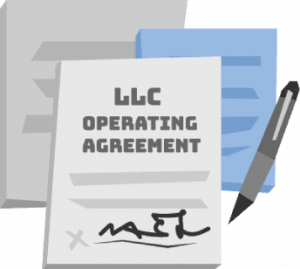How to Start an LLC in Virginia
There are three basic steps to starting an LLC in Virginia: naming your business, selecting a registered agent, and filing formation paperwork plus a $100 filing fee. But to remain compliant and ensure that your LLC is on legally firm ground, you’ll need to do more.
Below, we’ll go through the essential requirements for starting an LLC in Virginia, as well as the steps you should take to keep your LLC running smoothly.

1. Name Your Virginia LLC
Before anything else, you need to name your LLC. You can find Virginia’s complete set of LLC naming rules in Va. Code §13.1-1012. But in general, your LLC’s name must:
- Include an indicator like limited liability company, limited company, or LLC.
- Not include words like partnership or incorporated—anything that suggests your LLC is a different kind of entity.
- Be unique among other Virginia businesses.
If you’re already thinking of possible names, run a name check availability search. If you aren’t ready to form your business yet, you can reserve your business name by filing Form SCC631 online or by mail, and paying a $10 fee. The state will secure your name for up to 120 days.
It costs $10 to file for a DBA (doing business as) name in Virginia. A DBA, sometimes called a fictitious name, is a nickname for your business. Your legal business name is the one that appears on state formation documents.
Learn how to get a Virginia DBA.
Create Your Virginia LLC!


2. Get a Domain Name
A website domain that matches your business name improves search engine visibility, which means more customers will hear about your business when searching online. Northwest makes it easy to get a domain. In fact, anyone who hires us to form their Virginia LLC will get:
- One year of free domain registration.
- A customizable business website that’s kept safe with top-shelf SSL security.
- Up to 10 professional business email addresses.
- A local phone number with local area code.
Want more? Our friendly Corporate Guides® can help you with any questions you might have about a filing or form.

3. Designate a Registered Agent
All Virginia LLCs must have a registered agent. A registered agent is someone who can accept legal and state mail on behalf of your business. You must list your registered agent’s information on your Articles of Organization, so you’ll need one before you can form your LLC.
Your Virginia registered agent can be an individual or a business. Other than, a registered agent must meet the following requirements:
-
Have a Virginia business address
-
Be available during regular business hours
-
Accept state and legal mail on behalf of your LLC and get them to you quickly
You can be your own registered agent, as long as you’re fine with having your name and address listed on the public record. You must also be willing to maintain regular business hours at this address so you can accept any important documents.
Yes. To change your registered agent in Virginia, file a Statement/Certificate of Change of Registered Office/Registered Agent with the State Corporation Commission. There’s no charge to file.
With Northwest as your registered agent, you get fast, reliable service, a real business address, and Privacy by Default® right from the start. Need more as you grow? Our Virginia Mail Forwarding Service costs just $20/month, and gives you a Richmond commercial address and unlimited mail forwarding (choose between daily digital scans or weekly physical forwarding).

4. Submit LLC Articles of Organization
Registering your LLC with the state of Virginia requires you to file the a form called the Virginia Articles of Organization with the State Corporations Commission. It costs $100 to file.
Provide the following information on your Virginia Articles of Organization:
- Company name: Make sure to add an indicator such as limited company, LLC, or L.L.C.
- Registered agent name: List the name of your registered agent
- Registered agent address: This should be a street address in most cases, though there are exceptions for rural areas and cities with less than 2,000 people.
- Principal address: A street address is required (it can be located outside Virginia)
- Organizer’s name and signature: This is simply the person who signs and files your Articles of Organization. They don’t need to be associated with your business.
Note: All of the information on your LLC formation documents becomes part of the public record.
The filing fee for a Virginia LLC is $100.
If you file online, the state will process it the same day it’s received. If you file with a paper form, the processing time is 3 to 5 business days after receipt.
You’ve got three filing options: Online, by mail, or in person.
Mail:
State Corporation Commission
Clerk’s Office
P.O. Box 1197
Richmond, VA 23218
In person:
1300 E. Main Street, 1st floor
Richmond, VA 23219
Online:
Clerk’s Information System
Information you list on your Articles of Organization is considered public record, which could make it easier for marketers and spammers to find you and send you unwanted materials. If you want to avoid that, hire a registered agent company like Northwest and let us list our business address on your paperwork instead.
Your Virginia LLC Is Formed. What's Next?

Write an LLC Operating Agreement
An operating agreement is an internal document that details pretty much everything about how your business will be run. Among other things, it should cover how to handle membership disputes, how the LLC voting will work, and how membership interests will be distributed,.
Writing an operating agreement isn’t something that comes naturally. You should consult a lawyer or use our free Virginia LLC Operating Agreement Template.
No. Virginia law gives LLCs the option to have a written operating agreement, but it’s not a requirement. But it’s critical to draft a written operating agreement. Since it’s an internal document, you don’t need to file it with the state, but you’ll still want to keep copies of it around. Without an operating agreement, your LLC will be subject to Virginia’s default LLC laws, giving you less control of your business.
Your operating agreement should prepare your LLC to deal with all major events, including:
- Initial investments
- Profits, losses, and distributions
- Voting rights, decision-making powers, and management
Note: Having an operating agreement strengthens your LLC’s limited liability protections.
Yes, even though you won’t use it to settle disagreements with yourself. Instead, you’ll need an operating agreement to open a business bank account.

Get an EIN, Bank Account & Funding
Your Virginia LLC won’t be able to operate without money. To maintain your limited liability, you’ll need to open a business bank account, as it’s not good form to mix personal member accounts and LLC accounts. Before you open a bank account, you’ll likely need to get an EIN.
Once the business bank account is up and running, you and any other members will have to fund the LLC. Each member should make an initial contribution that’s equivalent to their membership interest.
To get an EIN (Employer Identification number), you can go to the IRS website and complete an application. To do this, you’ll have to give the IRS your social security number. If you don’t have a Social Security number, you’ll need to fill out a paper form and mail it.
When you hire us to form your Virginia LLC, we can also get your LLC an EIN.

File Taxes & Reports
Virginia LLCs must complete certain tax and reporting obligations. Here’s a breakdown:
Taxes
Virginia LLCs get taxed as pass-through entities by default. This means business profits are distributed to members (owners), who then must report those profits on their personal taxes. Your LLC’s profits are also subject to the federal self-employment tax rate of 15.3%.
Annual Reports
Unlike most states, Virginia does not require you to file an annual report. But you must pay a $50 annual registration fee to the State Corporation Commission. The fee is due at the end of your LLC’s anniversary month.
No, Virginia doesn’t require annual reports, but the state does require an annual registration fee of $50.
By default, Virginia LLCs get taxed as pass-through entities. You can file paperwork with the IRS if you’d prefer to be taxed as an S-corp or C-corp.
Learn more about S-corp vs LLC tax election.

8. Get Ready for Business
Now that you’re legally set to start doing business, it’s time to get your business ready to operate. This might include:
- Hiring staff
- Organizing products
- Getting business insurance
You’ll also need to promote your business and make it easy for customers to reach you. A website and business email help, but partners and agencies often expect something more formal.
That’s where a Virginia Virtual Office comes in. It gives you a professional business address, a local phone number, an office lease, and options for digital mail scans or weekly mail forwarding—so you can keep things organized and protect your privacy, no matter where you work.
Ready to Start an LLC in Virginia?







